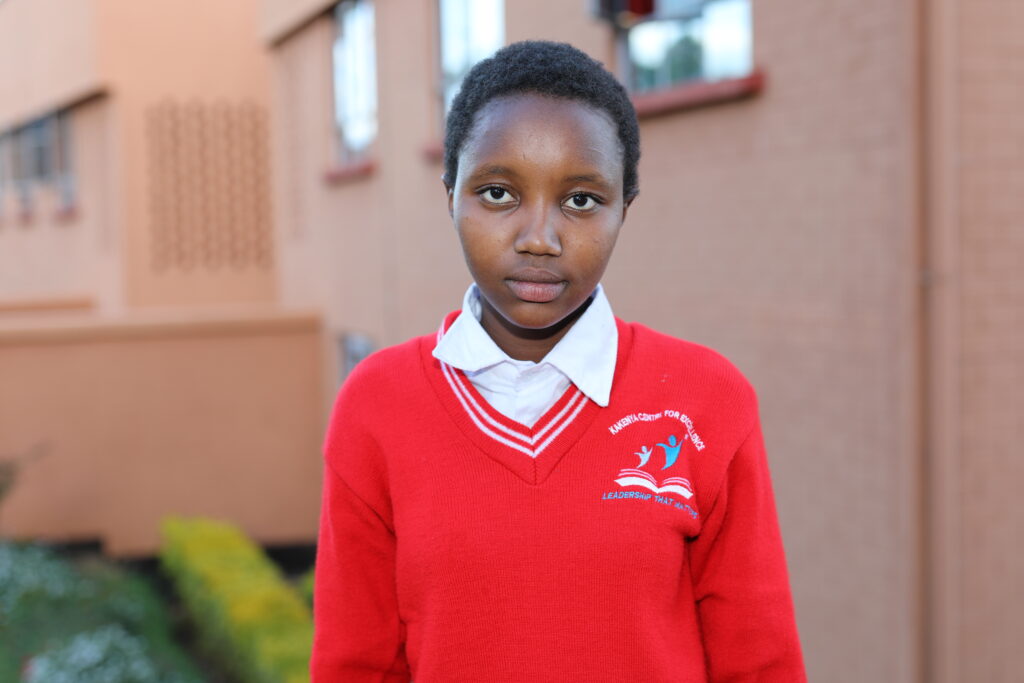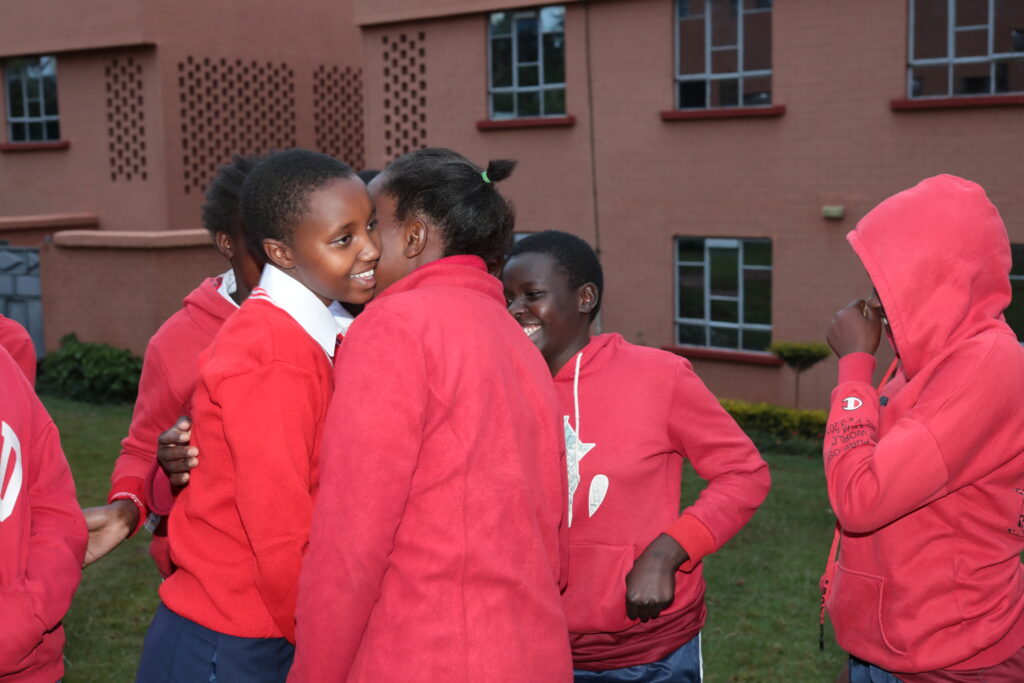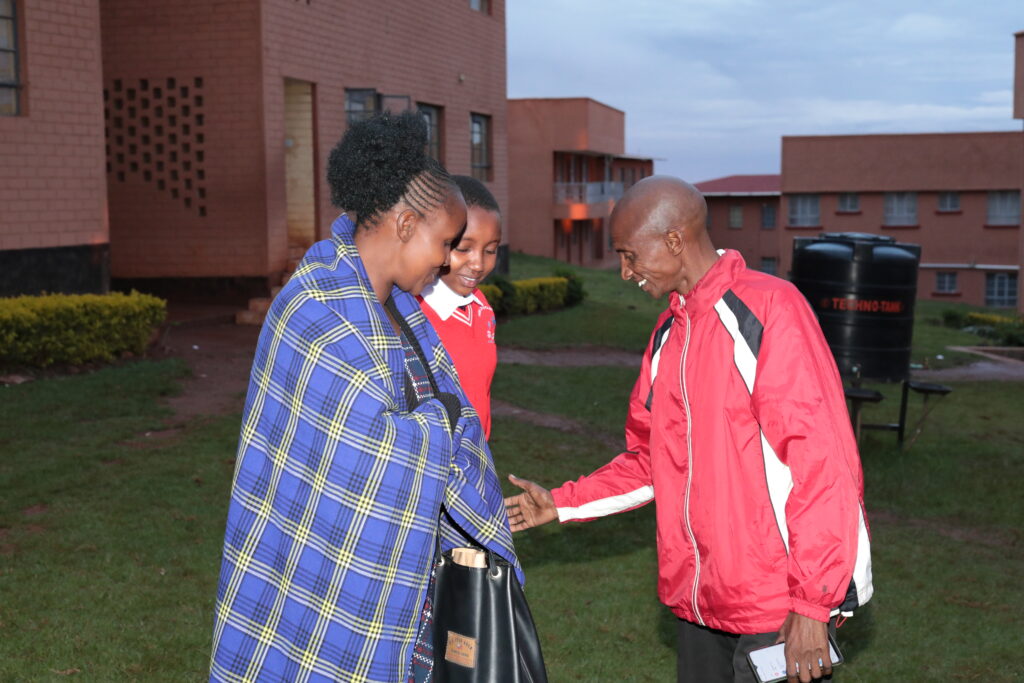Magdalene is one of our newest students at our Kakenya Center for Excellence II (KCE II). Like countless other girls across rural Kenya, she endured a stifling drought, the collapse of her family’s livelihood, and the threat of forced marriage. This is her inspiring story of resilience.

Magdalene, 15, is the eldest of six children. Her parents, like many others in rural Kenya, are pastoralists, which means their livelihoods revolve around raising and herding livestock. Since these herds require water and grazing pastures to survive, pastoralists depend heavily on the local environment — which makes them especially vulnerable to climate disruptions and natural disasters. The country’s recent drought, the worst in four decades, has been devastating for Magdalene’s family.
When the drought began in late 2020, every well and borehole around Magdalene’s village dried up. To fetch clean water (a responsibility that falls disproportionately on girls), she was forced to walk five hours to the nearest river. In such dire conditions, her family struggled to meet their own needs, let alone the needs of their livestock. Over the course of six consecutive failed rainy seasons, they lost around 30 cattle, sheep, and goats.
Magdalene’s father, John, said he watched in vain as their herd dwindled. “It has been four years of pain and steady loss. You hang on with the hope that it might rain tomorrow or the day after, but the sky is mean. One animal dies after another due to a lack of grass and water.” The story was the same for pastoralists across the country, with drought conditions leading to the deaths of an estimated 2.5 million head of livestock. This represents a national mortality rate of about 20%.
With his livelihood slashed, John could no longer afford to send his daughter to high school. Magdalene had already received an admission offer from Kimana Girls High School due to her exemplary performance on Kenya’s national exams. But without the means to pay tuition, she was forced to turn it down.

Magdalene knew that without an education, her options would be bleak. “I was afraid I may be forced to stay at home longer and be pushed by circumstances into child marriage.”
This is a common fate in the communities that Kakenya’s Dream serves, where 50% of girls are married before the age of 19. In times of crisis, however, this rate rises even higher. Across sub-Saharan Africa, marriages traditionally include a bride price (a payment made by the groom to the family of the bride), which can turn young girls into financial assets for desperate families with no other means of generating income.
But before her fate was sealed, a light appeared at the end of the tunnel. A radio station in Nairobi invited Magdalene and several other girls from the country’s drought-stricken regions to tell their stories on air. Magdalene seized the moment, sharing her greatest fears and ambitions, appealing to anyone that could help her continue her education. Her story inspired listeners across the country, including us at Kakenya’s Dream.
Following the broadcast, Magdalene waited anxiously for a reply. “I was ready to join any school, even if learning would be under a tree.” After several days, on the verge of giving up hope, she received the news that Kakenya’s Dream had offered to sponsor her education.

She and her parents soon made the 12-hour journey from their home to our campus. And while Magdalene was truly prepared to learn under a tree, much like our pioneer students during our humble beginning nearly 15 years ago, she was met with so much more: “I was impressed by the magnificent buildings. I was happy. I was given everything, including uniforms, boarding materials, and personal effects.”
Magdalene arrived at KCE II in March, about a month into the 13-week academic term. She had a lot to catch up on, but she met the challenge with the support of the Kakenya’s Dream community. “I managed to catch up because my classmates and teachers helped me with the study materials I needed.”
Despite her delayed enrollment, Magdalene performed exceptionally well on her end-of-term exams in late April. Magdalene now has her sights set on attending university, where she plans to pursue her passion for performing arts and land her dream career in medicine.
Magdalene’s story is as common as it is harrowing. Across the Horn of Africa, an estimated 20 million people face acute food insecurity as a direct result of the drought, a humanitarian disaster that will likely repeat itself sooner than expected thanks to climate change. But by investing in girls’ education — one of the best ways to increase a community’s climate resilience — you can equip girls like Magdalene with the tools to follow their dreams and uplift their communities in the process. Make your gift to girl’s education today.

